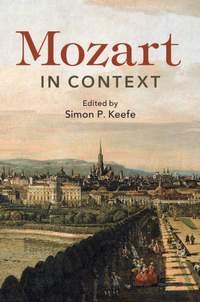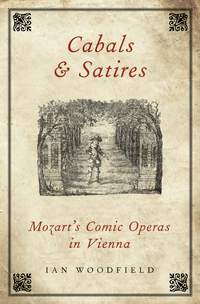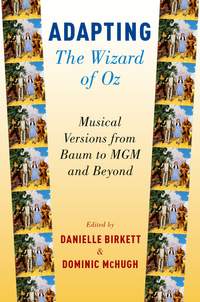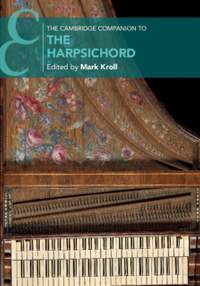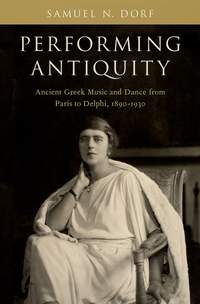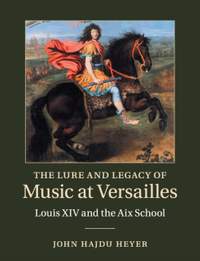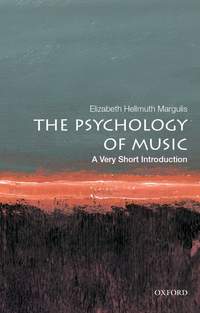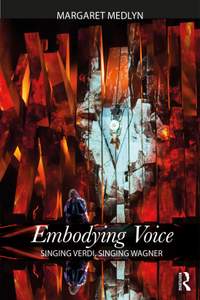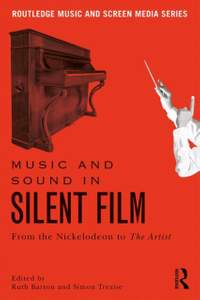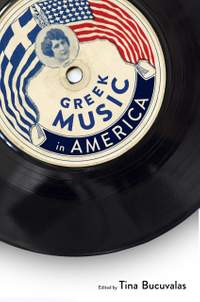New Publications,
New Music Book Publications - 7th January 2019
 Welcome to our latest selection of new music books. Our picks this time round include books on Mozart and the da Ponte operas, an introduction to the psychology of music, a companion to the harpsichord, and volumes discussing music in silent film and the history of The Wizard of Oz on stage and screen.
Welcome to our latest selection of new music books. Our picks this time round include books on Mozart and the da Ponte operas, an introduction to the psychology of music, a companion to the harpsichord, and volumes discussing music in silent film and the history of The Wizard of Oz on stage and screen.
Classical Composers
This book focuses on Mozart the man and musician as he responds to different aspects of the vibrant intellectual, social and political climate of mid eighteenth-century Europe. It reveals his views on music, aesthetics and other matters; on places in Austria and across Europe that shaped his life; on career contexts and environments, including patronage, activities as an impresario, publishing, theatrical culture and financial matters; on engagement with performers and performance, focusing on Mozart's experiences as a practicing musician; and on reception and legacy from his own time through to the present day.
Available Format: Book
A study of the political context in which Mozart wrote his three most famous Italian comedies, Figaro, Don Giovanni, and Cosi fan tutte. Joseph II's decision to place his opera buffa troupe in competition with the Singspiel provoked a struggle between the rival genres, both supported by vociferous cabals. Mozart's deft navigation of the turbulent political waters of this period left him well placed to benefit from the revival of the commercial stage in Vienna.
Available Format: Book
Rock & Pop Artists
Brian Eno's seminal album Ambient 1: Music for Airports continues to fascinate and charm audiences, not only as a masterpiece of ambient music, but as a powerful and transformative work of art. Author John T. Lysaker situates this album in the context of twentieth-century art music, where its ambitions and contributions to avant garde music practice become even more apparent.
Available Format: Book
History & Reference
One of the most beloved film musicals of all time, The Wizard of Oz represents an enduring family favorite and cultural classic. Yet the MGM movie is just one of many ways in which it has been represented. Starting with the early adaptations of L. Frank Baum's story, this book also explores the writing, composition and reception of the MGM film, its importance in queer culture, stage adaptations of the movie, cult classic The Wiz, Stephen Schwartz's Broadway blockbuster Wicked, and the cultural afterlife of the iconic Arlen-Harburg songs.
Available Format: Book
Written by fourteen leading experts in the field, this Companion covers almost every aspect of the harpsichord - the history of the instrument, tuning systems, the role of the harpsichord in ensembles, its use in the twentieth and twenty-first centuries, and includes separate chapters devoted to Domenico Scarlatti, J. S. Bach and Handel. With musical examples, illustrations, a timeline of the harpsichord, and an appendix of composers, reliable editions and original sources, this book is for all who love the harpsichord, or want to learn more about it.
Available Format: Book
This book tells the captivating story about some of the most intriguing Belle Epoque personalities -archaeologists, philologists, classicists, and musicologists - and the dancers, composers, choreographers and musicians who brought their research to life at the birth of Modernism.
Available Format: Book
In 1660 Louis XIV visited Aix-en-Provence, a trip that resulted in political and cultural transformations throughout the region. John Hajdu Heyer documents the young king's visit and examines how he and his court deployed sacred music to enhance the royal image and secure the loyalty of the populace. The book goes on to reveal how the history of political power in the region was reflected through church music, and how musicians were affected by contemporary events.
Available Format: Book
There is a long tradition of thinking about music as a product of the human mind. Written in a lively and accessible manner, this volume connects the science to larger questions that are of interest to practising musicians, music therapists, musicologists, and the general public alike. For example: Why can one musical performance move an audience to tears, and another compel them to dance, clap, or snap along? How does a "pump up" playlist motivate someone at the gym? And why is that top-40 song stuck in everyone's head?
Available Format: Book
This book articulates the process of developing an operatic voice, explaining how and why the training of such a voice is as complex and sophisticated as it is mysterious. It illustrates how embodying a sound and creating a character are vital to an audience's emotional involvement and enjoyment. Moreover, it addresses an imbalance of power between the opera director and the orchestral conductor - ultimately, it is the communicative power of the singer's voice that brings life to an opera, a fact well known by Verdi and Wagner.
Available Format: Book
Despite their name, the silent films of the early cinematic era were frequently accompanied by music and other sound elements of many kinds, including mechanical instruments, live performers, and audience sing-alongs. This book explores the multitude of functions filled by music in the rapidly changing context of the silent film era, as the concept of cinema itself developed. Examples are drawn from around the globe and across the history of silent film, both during the classic era of silent film and later uses of the silent format.
Available Format: Book
This volume provides a singular platform for understanding the scope, practice, and development of Greek music in America through essays and profiles written by principal scholars in the field. Greece developed a rich variety of traditional, popular, and art music that diasporic Greeks brought with them to America. In Greek American communities, music was and continues to be an essential component of most social activities. Music links the past to the present, the distant to the near, and bonds the community with an embrace of memories and narrative.
Available Format: Book


